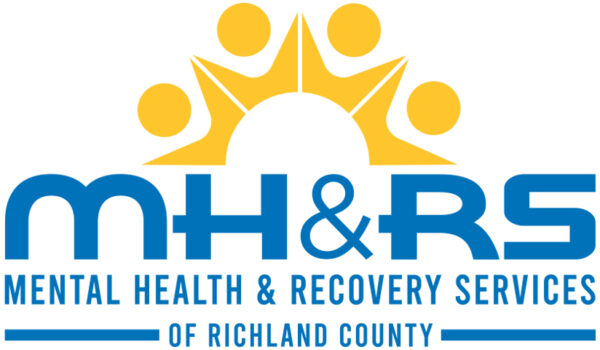Agency Prevention Professionals
Employment Opportunities
Assistant Director Position Opening. Click here for more information
Board of Trustees
Tammy Wurthmann
President
Richland County Court of Common Pleas
Melanie Fahey, Esq.
President-Elect
The Rinehardt Law Firm
Jason Hoover
Vice President
Richland County Probation
Susan Gates
Treasurer
Faith and Community Volunteer
Jennifer Moore, LPCC-S
Trustee
Clinical Mental Health Representative
Brian Gunder
Trustee
Richland County Sheriff’s Office
Stephen Blust
Trustee
Mansfield Police Department
Karissa Cobler
Trustee
Mechanics Bank
Donate
Thank you for selecting CACY as a recipient of your donation. We have many ways you can support prevention programs, awareness campaigns, community events, and supplies to be used with participants.
Kroger Community Rewards
Mighty Cause (November each year) through Richland County Foundation
PayPal
Send in Contributions
Agency Service Plan (As required by federal law)
Federal Tax Identification: Non-profit Corporation ID 34-1503726
Date of Incorporation: January 24, 1985
Governing Body: Nominated and elected Board of Trustees with designated terms of service.
Mission: CACY works to prevent substance abuse, violence, problem gambling, and suicide by promoting a safe and healthy community for all ages.
Scope of Service: Alcohol, tobacco, drug, problem gambling, and suicide prevention services, parenting support and mentoring.
Goals: 1) Reduce Morbidity/Increase Abstinence of risky behaviors; 2) Increase knowledge of youth and adults who perceive ATOD (alcohol, tobacco and other drug) use as risky or harmful; 3) Increase knowledge of risky behaviors and effects; 4) Increase youth who delay onset of ATOD use; 5) Increase risky behavior resistance skills; 6) Increase community change/Mobilization, Capacity and or Sustainability by increasing or establish community laws, policies and norms that disapprove of underage alcohol, tobacco, drug use, problem gambling and violence.
Service Strategy Provided:
- Information Dissemination: Focus on building awareness and knowledge of the nature and extent of substance use, abuse and addiction and the effects on individuals, families and communities, as well as the dissemination of information about prevention. It is characterized by one-way communication from source to audience, with limited contact between the two. This strategy is part of a comprehensive evidence-based approach.
- Education: Focus on the delivery of services to target audiences with the intent of influencing attitude and/or behavior. It involved two-way communication and is distinguished from information dissemination by the fact that interaction between the educator/facilitator and participants is the basis of the activities. Activities influence the critical life and social skills including decision-making, refusal skills, critical analysis and systematic judgment abilities. The target audience does not include individuals already diagnoses will addiction.
- Community Based Services: Focuses on enhancing the ability of the community to provide prevention services through organizing, training, planning, interagency collaboration, coalition building and or networking.
- Environmental: Focuses on a broad range of services geared toward reducing the incidence and prevalence of substance use/abuse and addiction in the general population. Community norms and access to and availability of substances are modified through media, messaging, policy and enforcement activities.
- Problem Identification & Referral: Focuses on referring individuals who are currently involved in primary prevention services and who exhibit behavior that may indicate the need for behavioral health or other assessment. This strategy does not include clinical assessment and/or treatment for substance abuse.
- Alternatives: Focuses on providing opportunities for positive behavior support as a means of reducing risk taking behavior, and reinforcing protective factors. Alternative programs include a wide range of social, cultural and community service/volunteer activities. This strategy is conducted as part of a comprehensive evidence-based approach.
Schedule of Services: Services are scheduled by service in agreement with program site. CACY general office hours are 8:00am to 4:00pm, Monday through Friday and closed on major holidays and weekends. Services may be scheduled outside the scope of general office hours.
Needs and Characteristics of Target Population: Depending on prevention service, children (preschool through high school), young adults (age 18 through 30 years), parents, community members, service providers, and general population.
Location of Services: Location of prevention service is usually where target population is currently located, such as a school, community center or agreed upon site within Richland County, Ohio.
Cultural Competency & Trauma Informed: Services are delivered utilizing culturally, ethnically, and trauma sensitive evidence-based curriculum.
Evaluation of Services: Evaluation of knowledge, attitudinal, behavioral, and skills development is assessed with each participant who receives full curriculum educational services. General stakeholder evaluation of services is completed annually through on-line surveys, individual program evaluation and/or verbal response. CACY also actively participates in the coordination and completion of the Richland County Community Health Assessment and Improvement Plans.
Consumer Outcomes: All consumer outcomes are reported as contracted in appropriate data systems.
Strategic Planning: CACY has adopted the 2024-2026 Richland County Community Health Improvement Plan as a guideline for targeted service delivery and comprehensive community partnership activities. CACY maintains an internal Quality Improvement Plan, which is updated annually through a Board of Trustees review.
Major Organizational Funders (more than $20,000 per source): CACY’s largest service contract is with Richland County Mental Health & Recovery Services Board. Other funding sources include private donors, fundraising activities and grants/foundations.
Description of Services, which are offered through referral to other providers: CACY is responsible for ATOD, problem gambling, violence, and suicide prevention services in Richland County, Ohio. Local treatment agencies are responsible for assessment and treatment of addiction and substance misuse/abuse. No contract (funding or otherwise) exists between agencies.
The provider service plan shall be available for review by persons served, their family, significant others and the public.
Rev. 07/21/2025
